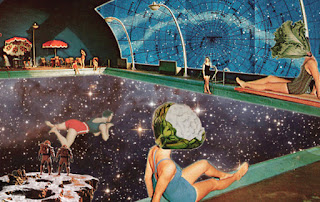Heterotopias

It is never one utopia but many utopias. A minarcho-councilist society is the flourishing of many utopias. Many different experiments in living by individuals and communities. Utopia is not a concrete destination but rather a direction. It is a process or method for shaping societies. Foucault wrote that utopias are not real. He instead wrote of heterotopias places that are nonhomogenous. Places that allow differences to thrive. We live in an epoch of juxtaposition. That of an interconnected network that is dynamically changing. And so we have the celestial place in turn opposed to the terrestrial place. Foucault points to the Copernican-Galilean de-centering and the resulting paradigm shift. “We live inside a set of relations that delineates sites which are irreducible to one another and absolutely not superimposable on one another.” (Foucault, Of Other Spaces). Heterotopias are world’s within worlds that allow for diversity and pluralism.

